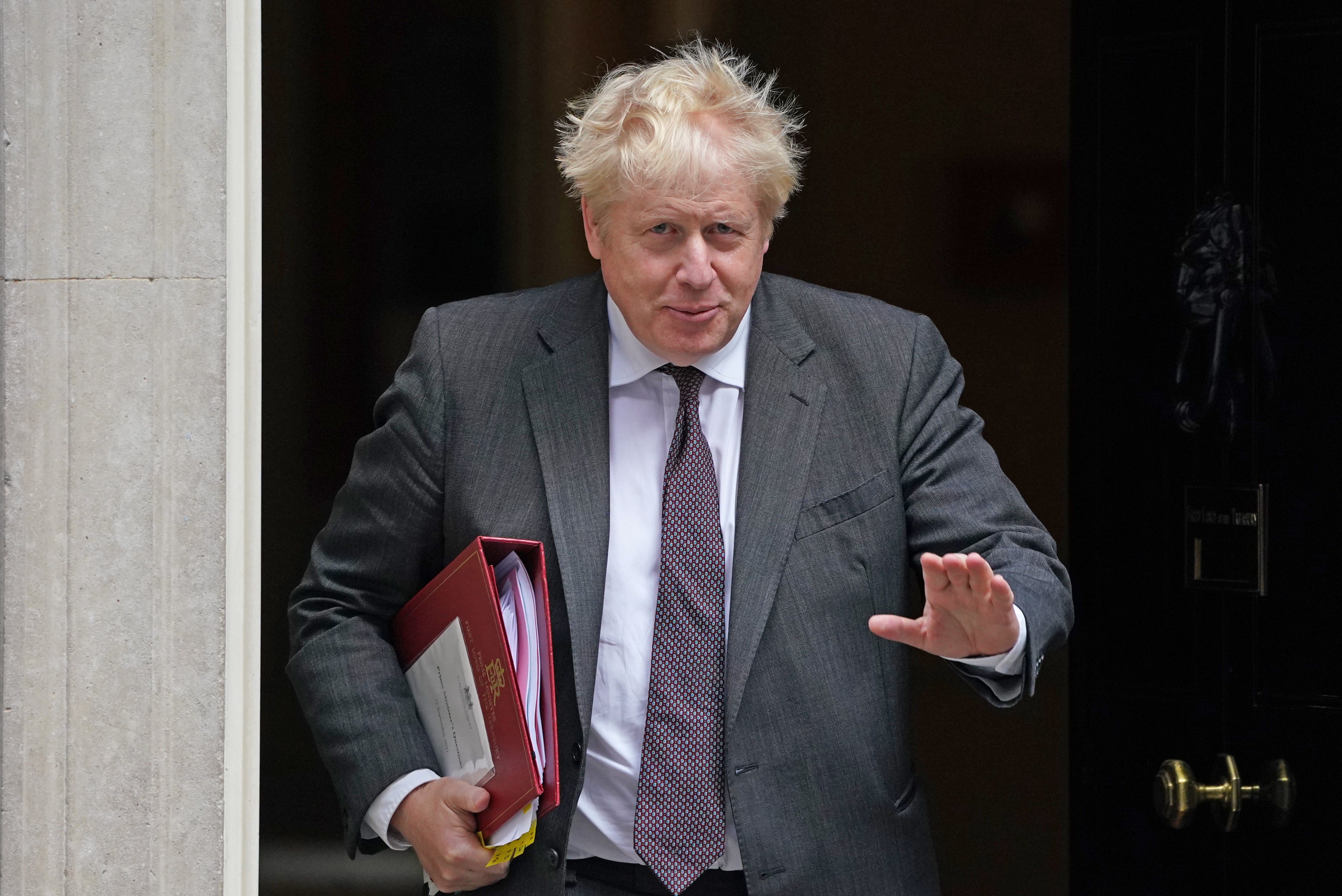The markets don’t really care what happens to Boris Johnson
It is always difficult to distinguish between a political reaction and wider economic forces, but last week – a pretty torrid one for the prime minister – the pound actually rose a bit, writes Hamish McRae


Big money doesn’t much mind whether Boris Johnson remains prime minister or is kicked out. That seems to have been the conclusion of the financial markets last week.
Usually, when a government is under pressure, it shows in the foreign exchanges, putting the pound under pressure too. After all, markets detest uncertainty, and the fate of the current UK prime minister ranks high on the uncertainty league table. But last week – a pretty torrid one for the PM – the pound actually rose a bit. It started below $1.36 against the dollar, but ended around $1.3675, nearly a cent up. Against the euro it was up a bit, too.
Or take share prices. So far this year, the shares of large UK companies, as measured by the FTSE100 index, are up by just under 4 per cent. The German equivalent, the DAX index, is up 2.5 per cent, and shares of emerging markets are up, too. But the main indicator of US shares, the S&P 500, is down by more than 2 per cent, while the value of hi-tech shares on the Nasdaq are down 5 per cent.
Now, it is quite true that these movements reflect a concern that hi-tech America has become overvalued by the market, and the solid British and German companies may be coming back into fashion among global investors. But the plain fact remains that, so far this year, the best-performing major equity market is the UK.
Longview Economics, the London-based consultancy that drew attention to this switch of sentiment last week, noted that the UK market – “a much out of favour, much maligned market and one of the cheapest country equity markets in the developed world” – had “closed at its highest in two years”.
So what does this say about the attitudes of global investors to this government, or indeed to British politics in general? It is always difficult to distinguish between a political reaction and wider economic forces. The fact that US markets performed well while Donald Trump was president does not mean that American investors thought he was the greatest leader of all time.
Some may have done, but many didn’t. The same applies to Joe Biden. The forces that carried on the upward movement in US share prices, pushing them to all-time highs at the end of last year, were the flood of money created by the Federal Reserve, the huge stimulus package going through Congress, and the acumen and drive of hi-tech American companies.
To keep up to speed with all the latest opinions and comment, sign up to our free weekly Voices Dispatches newsletter by clicking here
As far as the UK is concerned, part of the reason for the underperformance of its markets until recently has been that there are not very many large hi-tech firms in Britain, or indeed Europe, relative to the number in the US. But part of it is fashion, and that fashion has been driven by a sense that the government in general, and the prime minister in particular, is incompetent. So when there is good economic news, such as there was last week when it was revealed that the UK economy had risen to above its pre-pandemic size in November, this comes as a surprise to international investors.
It is hard to pin this down, but much of the negativity must surely be associated with the personality of Boris Johnson. So it would follow that, were he replaced by someone more orderly, some of that negative sentiment would be blown away. Britons have strong views about the prime minister, and understandably so. Foreign investors don’t care about that, for it is not their business. All they want to see is how well the country is run. If they think the economy is doing well, they will invest, and if not, they won’t.
So what happens next? I don’t think there will be any large-scale recovery in confidence in the UK while the current prime minister remains in office. If the economic performance continues to be reasonably positive, then sentiment will gradually shift, but do not expect anything radical. Were he to be replaced by someone who is recognised internationally – and of course the obvious candidate would be Rishi Sunak, because he has been more exposed to global investors – then that recovery in confidence would accelerate. With a less well known candidate, the recovery would be slower.
The harsh point here, however, is that a lot of people involved in finance seem no longer to care whether the PM goes or stays. Otherwise, why was his dreadful week so calmly received by the markets? What happens to the economy is more important, it seems, than what happens to Boris Johnson.



Join our commenting forum
Join thought-provoking conversations, follow other Independent readers and see their replies
Comments